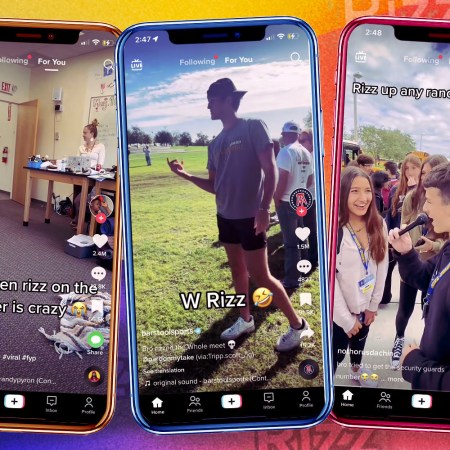The very notion of ghosting is ever evolving. What seems like a pretty straightforward concept — ceasing communication with someone without providing warning or explanation — continues to grow in complexity, with new terms and subcategories, varying intensities, and a breadth that transcends the world of dating apps.
Ghosting is by no means a new phenomenon; it’s been prevalent within the dating lexicon due in large part to apps like Tinder and Bumble, where the act seems like an inevitable part of the experience, for most people more common than actual dates. Despite its ubiquity, being ghosted still sucks. It invites one to enter a spiral of self-doubt: Did I say something wrong? Do something wrong? Am I boring? Ugly? Repulsive? A worthless piece of shit incapable of being loved? Contending with these questions on a daily basis is difficult enough, and being ghosted only serves to compound them; our worst thoughts and fears about ourselves are seemingly confirmed. Maybe we are worthless pieces of shit incapable of being loved after all.
If you have a significant other, you might think yourself spared from ghosting — no text ignored, consistent communication flowing carefree from and to your phone. But while you think you’re living in non-ghosting bliss, the threat looms for everyone. Just because ghosting is most commonly thrown around in regards to dating doesn’t mean it’s relegated to that world. Have you reached out to a friend only to receive no response or acknowledgement? Did a potential employer shower you with effusive promises of letting you know about the job, only never to do so? I regret to inform you, you’ve been ghosted. It can happen to anyone, by anyone — even your mom can ghost you. The possibilities are endless!
But for all the pain ghosting can inflict, it’s occasionally a necessary evil. Now, I’m not advocating for ghosting as a solution to every minor inconvenience (I’m not a monster). However, certain situations call for it. Again, it’s complicated. But together we can navigate the swiftly changing world of ghosting and hopefully won’t get too spooked along the way.
The Ghosting Glossary
We should all be pretty familiar with the classic and original form of ghosting, but if you’re still a little iffy on what exactly it entails, here’s an official definition from Merriam-Webster: “the act or practice of abruptly cutting off all contact with someone (such as a former romantic partner) by no longer accepting or responding to phone calls, instant messages, etc.” From here, things get a little more complicated.
There may be instances where all the signs of ghosting are there: no response to any form of message, no attempt at contact, complete radio silence. And then … boo! They’re back. Usually the would-be ghoster makes their presence known through something minimal, like viewing your Instagram story or liking a tweet — actions that can seem more significant in he eyes of the ghosted party. This particular brand of ghosting is referred to as orbiting, a term coined by Anna Iovine. Orbiting makes ghosting seem like a blessing — at least when you’re truly ghosted, you no longer have to reckon with this person’s vague semi-presence in your life and agonize over what each like and view means (which, in all honesty, probably means nothing).
Similar to orbiting is soft-ghosting, wherein the person will “like” your message but won’t extend a response beyond that, allowing them to claim they technically didn’t ghost you. It’s an annoyingly passive-aggressive technique favored by those too cowardly to go full ghost or fess up to how they actually feel.
Other times, a person might contact you, but infrequently and seemingly at random, which is commonly referred to as breadcrumbing or paperclipping (named after the annoying Microsoft paperclip ‘Clippy,’ who pops up when you don’t want or need him). These breadcrumbs might come in the form of actual words and sentences, but it’s unlikely anything will come to fruition from these interactions. More often than not, the person will disappear again.
It’s easy to view these various forms of ghosting solely through the lens of romantic or sexual relationships, but again, they can occur within any type of relationship, whether business or personal, romantic or platonic.
When, if ever, is ghosting acceptable?
Much of the appeal of ghosting lies in the fact that it’s so easy, as long as you lack empathy for others and aren’t prone to being consumed by guilt. We’ve all ghosted someone in our life, or we will at some point, and if we’ve all been ghosted. But before you find yourself tempted to go into ghost mode, take a moment to reflect on your own experiences having been ghosted —the damage incurred to your self esteem (lest you forget all the spiraling and self doubt). Letting someone down, telling them they didn’t get a job, revealing your true feelings — none of these things are meant to be easy, but doing them will give you both peace of mind and allow you both to move forward unhindered.
There are a few exceptions, though, when ghosting is ok. If you’ve exchanged a few brief messages with someone over a dating app but never met in person, while they may be baffled by your sudden disappearance, it’s safe to assume they won’t be heartbroken. And if someone generally makes you feel uncomfortable and gives you the heebie jeebies, take it one step further and hit them with that block.
But if you are going to ghost someone, at the very least commit to your decision. No orbiting or breadcrumbing, please.
The Charge will help you move better, think clearer and stay in the game longer. Subscribe to our wellness newsletter today.

























